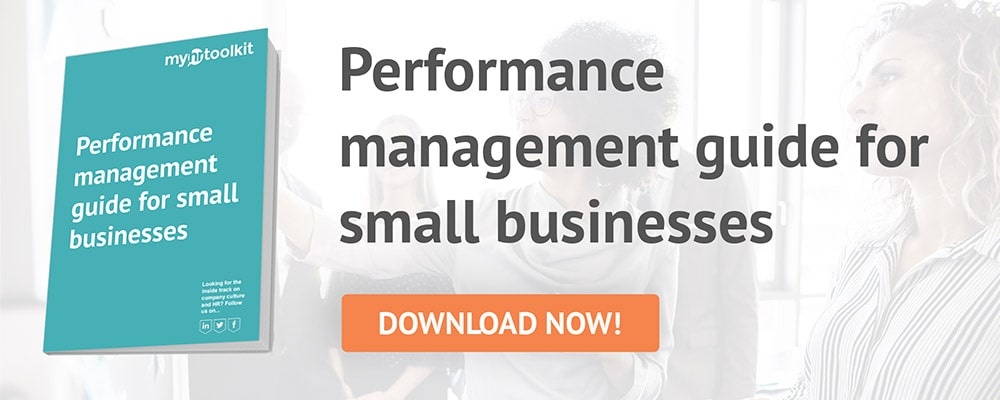How can you keep high performing employees motivated and engaged with the business? Learn how to manage high performers with this guide from HR professional Gemma Dale.
Ensuring effective employee performance is a critical business issue for most, if not all organisations. Often, our focus falls on addressing underperformance, and we develop policies and procedures in order to do so. It is, however, just as important to have a strategy for managing high performers too: identifying, supporting, and further developing those crucial employees who are key contributors.
High performers who are not motivated or recognised may become disengaged – or even seek opportunities elsewhere.
Identifying high performance
Some organisations have systems to identify those individuals considered to be high performers or have high potential for the future (such as someone who could take a more senior role within a reasonable timescale). These systems are usually part of an overall talent management strategy; being identified as a high performer may lead to specific learning and development or opportunities to further enhance potential such as access to coaching or mentoring. In contrast, other organisations reject this focus on high performers, believing instead that everyone has talent and potential.
When we talk about high performers, therefore, we may be referring to someone who has been formally identified as a high performer through an internal process, or simply someone the employee’s manager has recognised as being an above average performer or making an above average contribution.
Performance management reviews
Performance management review processes can contribute to the identification and future development of high performers; they can also be a mechanism through which their contribution is recognised and rewarded.
Whether formal or informal, all organisations should aim to understand their overall picture of employee performance. Who is underperforming and needs further support, and who is a high performer with strong future potential? This can support longer term talent management and workforce planning.
Managing and motivating high performers
First of all, it’s important to note that there is no single technique that will motivate all high performers, or even all employees in general. What each of us wants from work and our working lives will vary. For some people it’s about money and other benefits. Others might be motivated by status or opportunities to develop. Managers must therefore be aware of the need to tailor their approach to the individual concerned.
Do not assume that consistently high performers don’t need a great deal of support or direction. Whilst they may be extremely competent or confident, it is still important to have regular dialogue about the present and the future.
Training high performers
Some managers might also assume that a higher performing team member does not have significant learning or development needs, because they are already highly capable. Both of these assumptions could be costly. High performers will still need guidance and formal performance management – and they may have specific challenges too. Many are also highly driven and continuing to develop professionally will be important to them.
5 tips for managing high performers
Here are some five top tips to consider in the performance management of high performers:
1. Provide autonomy and avoid micromanagement
Generally, autonomy is a key motivator, so managers should set objectives and agree a level of autonomy – and then get out of the way. High performers may not welcome close management. This doesn’t mean managers should have no contact at all - even where the manager feels that the employee has sufficient competence that they can be largely ‘hands off’, it is still important to check in about support or guidance needs.
2. Manage workload
High performers often have a strong reputation, and their skills and capabilities may be in high demand. It’s therefore important to ensure that they don’t over commit or take on too much. Be sure to discuss and review workloads on a regular basis. It may also be necessary for the manager to provide a ‘buffer’ between the high performer and others seeking to involve them in new projects or tasks as part of ensuring a suitable workload.
3. Talk about the future
Although not always the case, some high performers will also be highly ambitious. They may be keen to progress in the organisation or take on more responsibility. Have a regular career conversation to help identify opportunities to fulfil their longer term ambitions. Some managers fear performance conversations in case they are unable to meet the individual’s goals or aims – but effective dialogue between manager and their team members is always a good idea.
4. Provide opportunities for personal growth
High performers may need additional challenge to keep them excited and motivated about their work. Managers should seek to provide ‘stretch’ in objectives and tasks, and provide meaningful, useful feedback to allow ongoing personal development.
5. Recognise and reward contribution
Everyone likes being recognised for their contribution and high performers are no exception, so be sure they don’t feel taken for granted. A failure to provide reward and recognition can lead to demotivation and disengagement. This does not have to be about big pay rises or bonuses, but an acknowledgement of the individual’s value to the team and the wider organisation.
Together, these tips can help to retain, engage, and further develop an organisation’s top performers – however, always remember that some of these tips apply to every other employee too, however they are defined.
Read more from the myhrtoolkit blog
How to develop a performance management plan for your small business

Written by Gemma Dale
Gemma Dale is an experienced senior HR professional, CIPD Chartered Fellow, HEA Fellow, and a regular speaker and writer on a variety of HR topics. Gemma is the co-author of the book 'Flexible Working' published by Kogan Page in 2020. She is also a lecturer in the Business School at Liverpool John Moores University and runs her own business, The Work Consultancy.


 Holiday Planner
Holiday Planner Absence Management
Absence Management Performance Management
Performance Management Staff Management
Staff Management Document Management
Document Management Reporting
Reporting Health and Safety Management
Health and Safety Management Task Management
Task Management Security Centre
Security Centre Self Service
Self Service Mobile
Mobile




